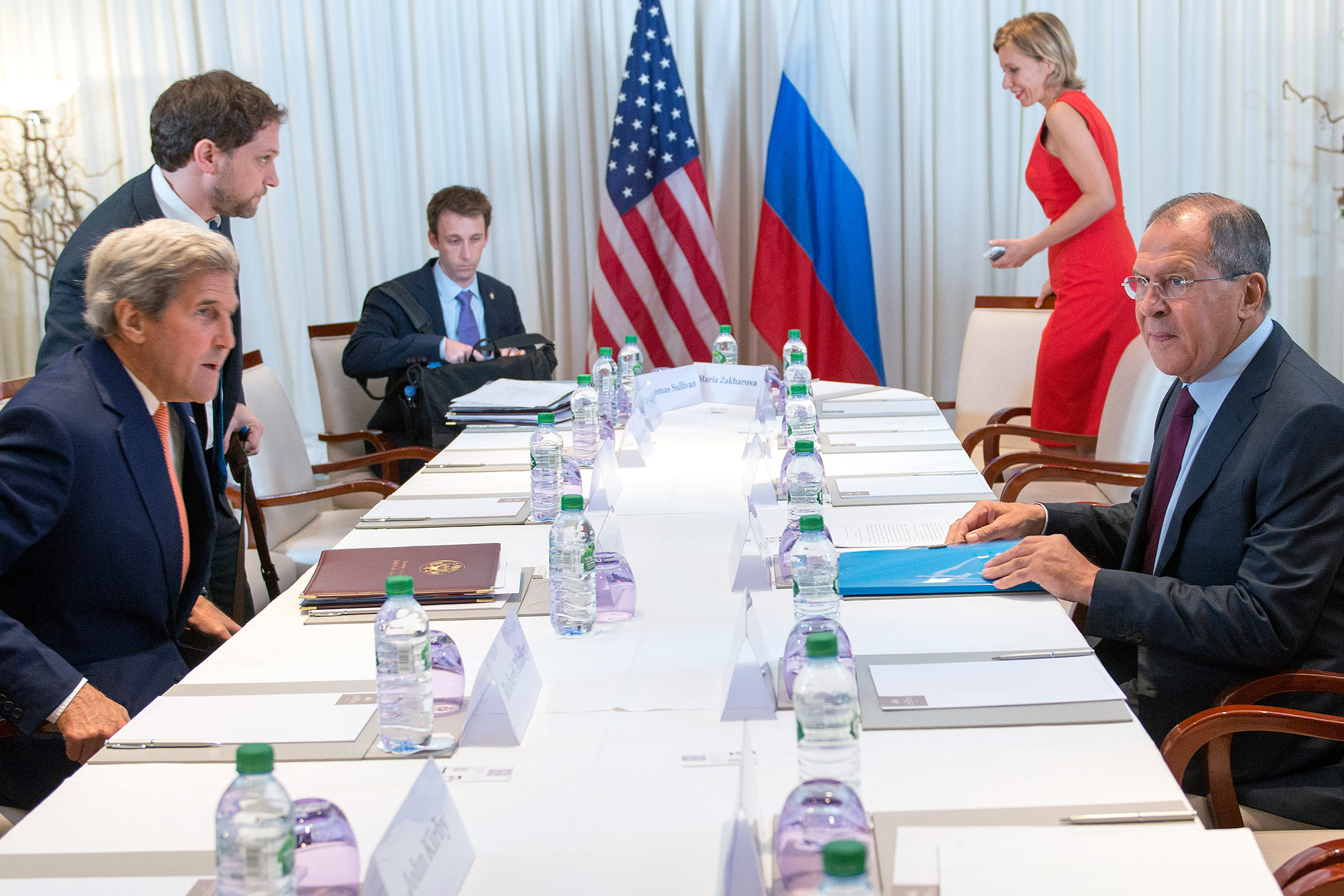U.S., Russia See Progress But No Breakthrough in Syria Talks

EghtesadOnline: The U.S. and Russia said they made progress toward a new cease-fire in Syria’s civil war but had no breakthroughs after nine hours of talks in Geneva, underscoring the deep differences that remain in bringing a lasting settlement to the country’s bloody conflict.
According to Bloomberg, U.S. Secretary of State John Kerry and Russian Foreign Minister Sergei Lavrov also discussed ways to get humanitarian relief to the country’s besieged citizens. The focus was on ironing out details on how to address cease-fire violations by President Bashar al-Assad’s regime as well as the rise of a rebel group linked to al-Qaeda that has mingled with opposition groups backed by the U.S.
“We achieved clarity on the path forward,” Kerry told reporters at a briefing Friday, adding that the ultimate goal was to get all sides to the table “so we can have a serious negotiation about how to end this war.”
The meeting marked yet another attempt to find common ground on easing a conflict that has killed at least more than 250,000 people and spurred millions of Syrians to seek refuge in Europe. Numerous efforts in the past to pause the fighting and start a political transition have failed, stymied by al-Assad’s continued campaign against the rebels, Russian and Iranian air and ground support, and the moderate and extremist rebel groups fighting him.
“As we have all seen now, violations eventually became the norm rather than the exception,” Kerry said, discussing an original cease-fire reached in February. “Needless to say, the situation has dramatically deteriorated since the brief oasis of calm that followed the launch of the cessation of hostilities.”
Dire Situation
With international organizations and aid groups citing an increasingly dire situation in the key northern city of Aleppo, one focus of the talks was how to suspend the fighting long enough to effectively deliver humanitarian aid. The city has seen fierce battles between rebel groups and Syrian troops backed by Russian airstrikes. Hundreds of thousands of civilians remain cut off from relief.
Yet the comments by Kerry and Lavrov also reflect how the two countries remain far apart on big issues, including Assad’s fate and the U.S. insistence that his forces, as well as Russia’s, not target moderate opposition groups as they pursue the Nusra and Islamic State, whose headquarters are in the Syrian city of Raqqa.
Kerry reiterated the need for a political transition. Lavrov, meanwhile, called for “pragmatism,” citing the cases of Libya and Iraq, two countries that fell into chaos after their leaders were removed from power.
“Everyone understands one cannot make these mistakes once again,” Lavrov said.
“For the Russians, Assad is part of the solution -- that’s a fundamental difference between the two sides,” said Derek Chollet, a senior adviser at the German Marshall Fund and a former member of the Obama administration. “Short of some reconciliation on that core difference it’s hard to see much possibility for cooperation.”
Ease Suffering
The U.S. and Russia stressed that Friday’s talks were not meant to address the political issue, but to ease regular Syrians’ suffering and bring a halt to the fighting and create room for broader negotiations later on.
Talks between teams from both the U.S. and Russia will continue over the next several days, they said.
A key concern for Russia is the fact that the Nusra Front-- which recently changed its name to Jabhat Fatah al-Sham -- has in many cases teamed up with moderate rebels that the U.S. supports. The U.S. argues that Russia is targeting moderate rebels under the guise of fighting terrorists. Russia, on the other hand, says the U.S. is looking to block strikes on terrorist groups out of concern that the rebels it supports would be hit.
The U.S. and Russia have also discussed a proposal under which Russia would ground Syria’s air force in exchange for intelligence about Nusra’s location for coordinated air strikes. That idea -- known as the Joint Implementation Group agreement -- has run up against opposition from within other agencies in the U.S. government, complicating Kerry’s efforts.


